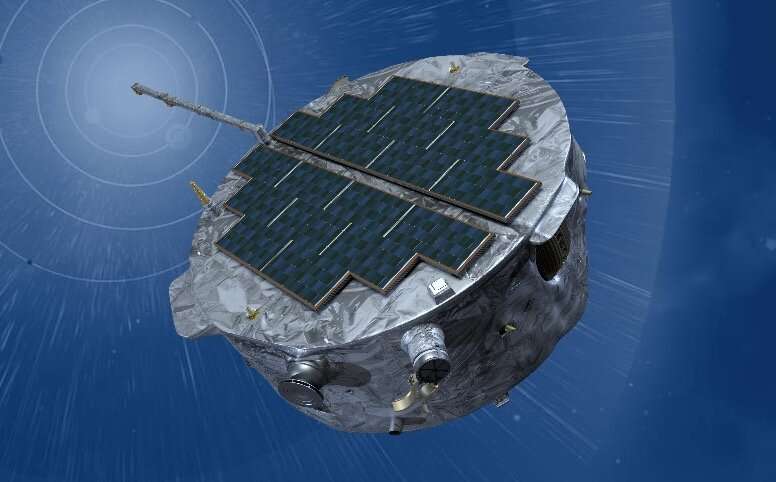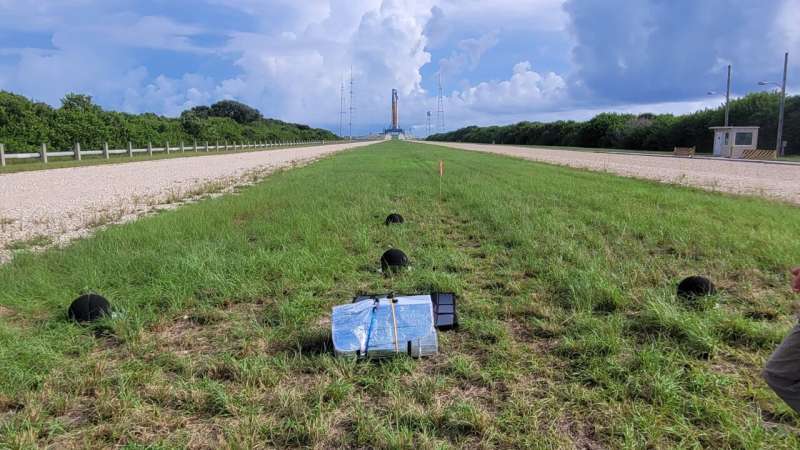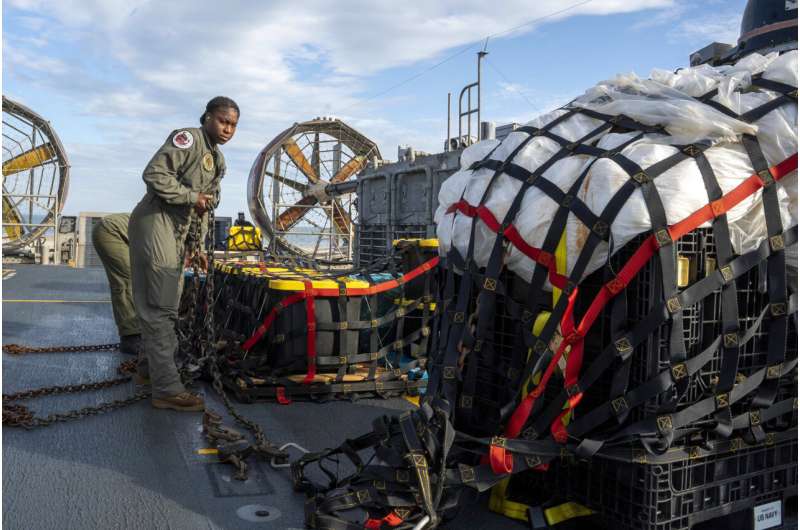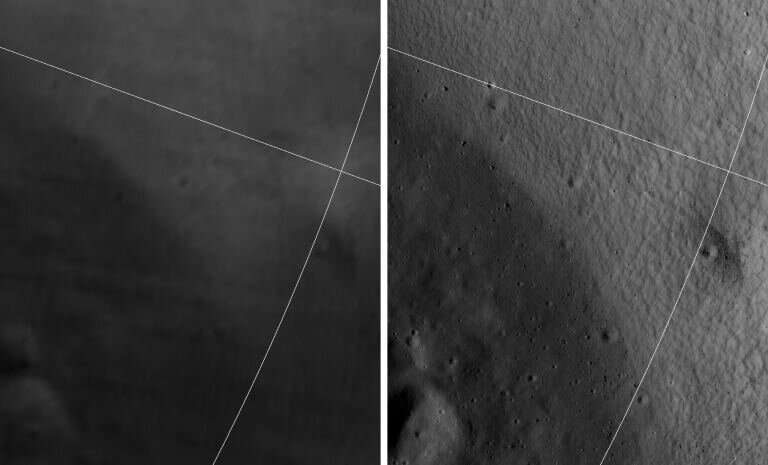
Copernical Team
NASA's IMAP spacecraft completes mission critical design review, moves closer to 2025 launch

NASA's Interstellar Mapping and Acceleration Probe (IMAP) spacecraft has completed the Mission Critical Design Review and is on track to meet its scheduled 2025 launch. Southwest Research Institute (SwRI) is managing the payload office, providing the scientific instrument Compact Dual Ion Composition Experiment (CoDICE) and is participating on other instrument teams for the mission, which will study the interaction between the solar wind and the interstellar medium as well as the fundamental processes of particle acceleration in space.
The roar and crackle of Artemis 1

When the Artemis 1 mission was launched by NASA's Space Launch System, SLS, in November, it became the world's most powerful rocket, exceeding the thrust of the previous record holder, Saturn, by 13%. With liftoff came a loud roar heard miles away.
In JASA Express Letters, researchers from Brigham Young University and Rollins College in Florida reported noise measurements during the launch at different locations around Kennedy Space Center.
The data collected can be used to validate existing noise prediction models, which are needed to protect equipment as well as the surrounding environment and community. These data will be useful as more powerful lift vehicles, including the SLS series, are developed.
"We hope these early results will help prevent the spread of possible misinformation, as happened with the Saturn 5," author Kent Gee said. "Numerous websites and discussion forums suggested sound levels that were far too high, with inaccurate reports of the Saturn 5's sound waves melting concrete and causing grass fires.
Minuteman III test launch showcases readiness of U.S. nuclear force's safe, effective deterrent
 A team of Air Force Global Strike Command Airmen launched an unarmed Minuteman III intercontinental ballistic missile equipped with a test reentry vehicle at 11:01 p.m. Pacific Time Feb. 9 from Vandenberg Space Force Base, California.
This test launch is part of routine and periodic activities intended to demonstrate that the United States' nuclear deterrent is safe, secure, reliable and e
A team of Air Force Global Strike Command Airmen launched an unarmed Minuteman III intercontinental ballistic missile equipped with a test reentry vehicle at 11:01 p.m. Pacific Time Feb. 9 from Vandenberg Space Force Base, California.
This test launch is part of routine and periodic activities intended to demonstrate that the United States' nuclear deterrent is safe, secure, reliable and e Tracking ocean microplastics from space
 New information about an emerging technique that could track microplastics from space has been uncovered by researchers at the University of Michigan. It turns out that satellites are best at spotting soapy or oily residue, and microplastics appear to tag along with that residue.
Microplastics-tiny flecks that can ride ocean currents hundreds or thousands of miles from their point of entry
New information about an emerging technique that could track microplastics from space has been uncovered by researchers at the University of Michigan. It turns out that satellites are best at spotting soapy or oily residue, and microplastics appear to tag along with that residue.
Microplastics-tiny flecks that can ride ocean currents hundreds or thousands of miles from their point of entry FCC greenlights Amazon's Project Kuiper to deploy 3,236 satellites in LEO
 The Federal Communications Commission's (FCC) International Bureau approved Amazon on February 8 to deploy and operate their 3,236 low-Earth orbit (LEO) satellites, called "Project Kuiper," for broadband service using Ka-band radio frequencies.
The approval comes after satisfying requirements for orbital-debris mitigation, collision risk, and coordination with other satellite systems, re-e
The Federal Communications Commission's (FCC) International Bureau approved Amazon on February 8 to deploy and operate their 3,236 low-Earth orbit (LEO) satellites, called "Project Kuiper," for broadband service using Ka-band radio frequencies.
The approval comes after satisfying requirements for orbital-debris mitigation, collision risk, and coordination with other satellite systems, re-e Rumors swirl about balloons, UFOs as officials stay mum

Media invitation: View Euclid spacecraft in Cannes before launch

Journalists are cordially invited to view Euclid, ESA’s ambitious mission to explore the dark Universe, in Cannes, France, on 21 February 2023.
Media will be given the rare opportunity to see the spacecraft in the cleanroom of Thales Alenia Space (TAS), prior to shipment for its launch from Cape Canaveral, Florida, USA in July 2023.
New spacecraft can see into the permanently shadowed craters on the moon

Shackleton Crater at the lunar south pole is one of the locations on NASA's shortlist for human exploration with the future Artemis missions. But because craters at the lunar poles—like Shackleton—at have areas that are perpetually in shadow, known as permanently shadowed regions (PSRs), we don't know for sure what lies inside the interior. However, a new spacecraft with a specialized instrument is about to change all that.
Large number of launches planned
 China plans to carry out more than 70 launch missions this year, according to the nation's major space contractors.
China Aerospace Science and Technology Corp, the nation's dominant space enterprise, has more than 60 launch missions planned for this year, and it aims to deploy more than 200 spacecraft in orbit, according to the Blue Book of China Aerospace Science and Technology Activitie
China plans to carry out more than 70 launch missions this year, according to the nation's major space contractors.
China Aerospace Science and Technology Corp, the nation's dominant space enterprise, has more than 60 launch missions planned for this year, and it aims to deploy more than 200 spacecraft in orbit, according to the Blue Book of China Aerospace Science and Technology Activitie SpaceX launches 55 Starlink satellites early Sunday morning
 The 229-foot-tall (70-meter) Falcon 9 rocket thundered off from Space Launch Complex 40 at Cape Canaveral Space Force Station, Florida, at 12:10:10 a.m. EST (0510:10 GMT) on Sunday, despite the weather.
SpaceX's Starlink Group mission 5-4 launched 55 Starlink satellites onboard the Falcon 9. This is the fourth launch into a new orbital shell for SpaceX's second-generation Starlink constell
The 229-foot-tall (70-meter) Falcon 9 rocket thundered off from Space Launch Complex 40 at Cape Canaveral Space Force Station, Florida, at 12:10:10 a.m. EST (0510:10 GMT) on Sunday, despite the weather.
SpaceX's Starlink Group mission 5-4 launched 55 Starlink satellites onboard the Falcon 9. This is the fourth launch into a new orbital shell for SpaceX's second-generation Starlink constell 